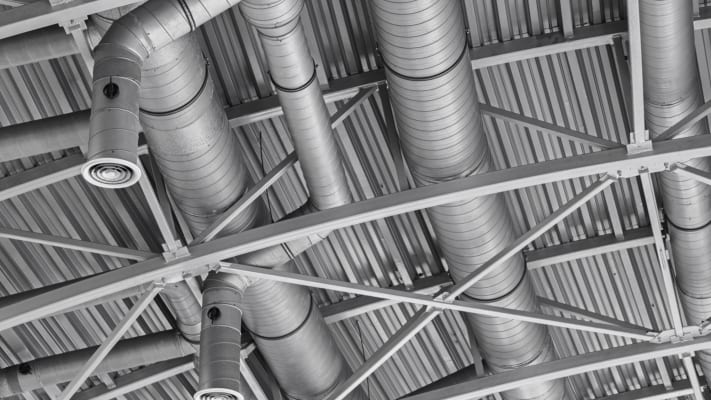Are you spending more on energy costs than ever before? There’s no question that every business strives for greater efficiency in some way. Why would any business owner want to spend more money or devote more to a process when it isn’t necessary? In regard to energy consumption, efficiency is incredibly important as the less efficient an HVAC system is, the more you’ll spend on energy. In addition to that, you’re more at risk for a significant breakdown that could potentially affect your business’s operations.
The good news is that inefficient heating and cooling does not have to be a lifelong sentence. There are many ways to get more efficiency out of your HVAC system, which can help you save on energy and operational costs. In addition to that, greater efficiency can strengthen your organization’s sustainability efforts as well. Here a few considerations to make as you attempt to attain a more efficient system:
1. Have Your HVAC System Checked for Leaks in the Heating and Cooling Ducts
Leaks in the heating and cooling ducts are a significant waster of energy. You can potentially save as much as 20% of your business’s energy costs when you have your ducts sealed properly.
2. Replace the Filter as Often as Required
Dirty air filters cause two major issues. First, they clog and restrict air flow, which means your system will have to work significantly harder to achieve the same temperature. Second, dirty air filters damage indoor air quality, which can affect employee health. You should change your filter as often as recommended (usually about once a month) to mitigate these issues and prevent a breakdown.
3. Don’t Ignore the Small Repairs
Ongoing HVAC quality maintenance can save a business as much as 40% of total maintenance costs. Just as with any technology, small problems do occur, and if those problems aren’t repaired, they can lead to bigger problems down the road. Be sure to have a good relationship with an HVAC company that you trust, and don’t ignore any issues in the hope that they will get better on their own.
4. Have Programmable Thermostats Installed to Reduce Waste
Depending on the type of industry you’re in, you might have downtime or spaces where it does not need to be heated or cooled to the same temperature as when there is more foot traffic. Programmable thermostats can optimize when the HVAC system is used and to what extent to ensure energy isn’t being wasted when it isn’t necessary.
5. Update Older Systems
Unfortunately, HVAC systems don’t last forever. If you have had your system for more than ten years, it’s probably time for a major upgrade or outright replacement. An investment in a new system can significantly reduce total energy costs in the long run. However, keep in mind that you will need an HVAC solution to maintain operations if you decide to replace or update your system. Carrier heating and cooling solutions can ensure your operations aren’t affected when your system is down.
